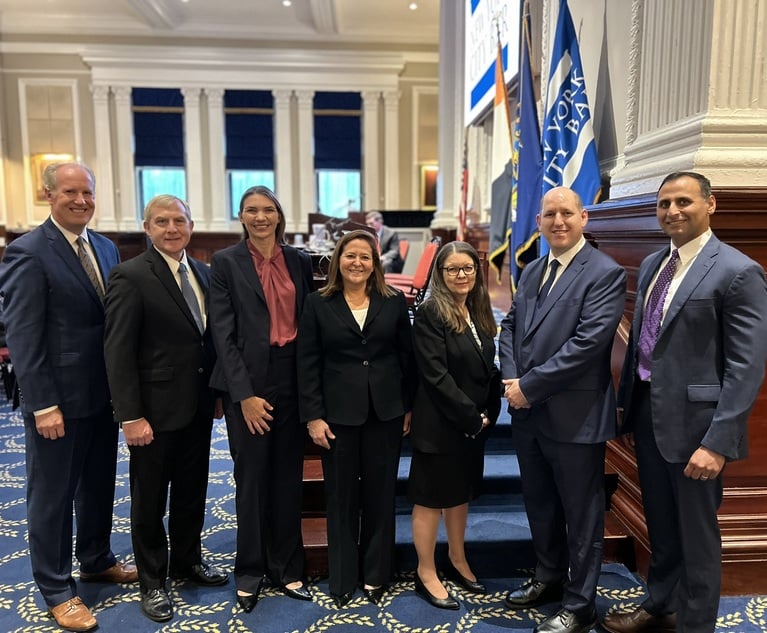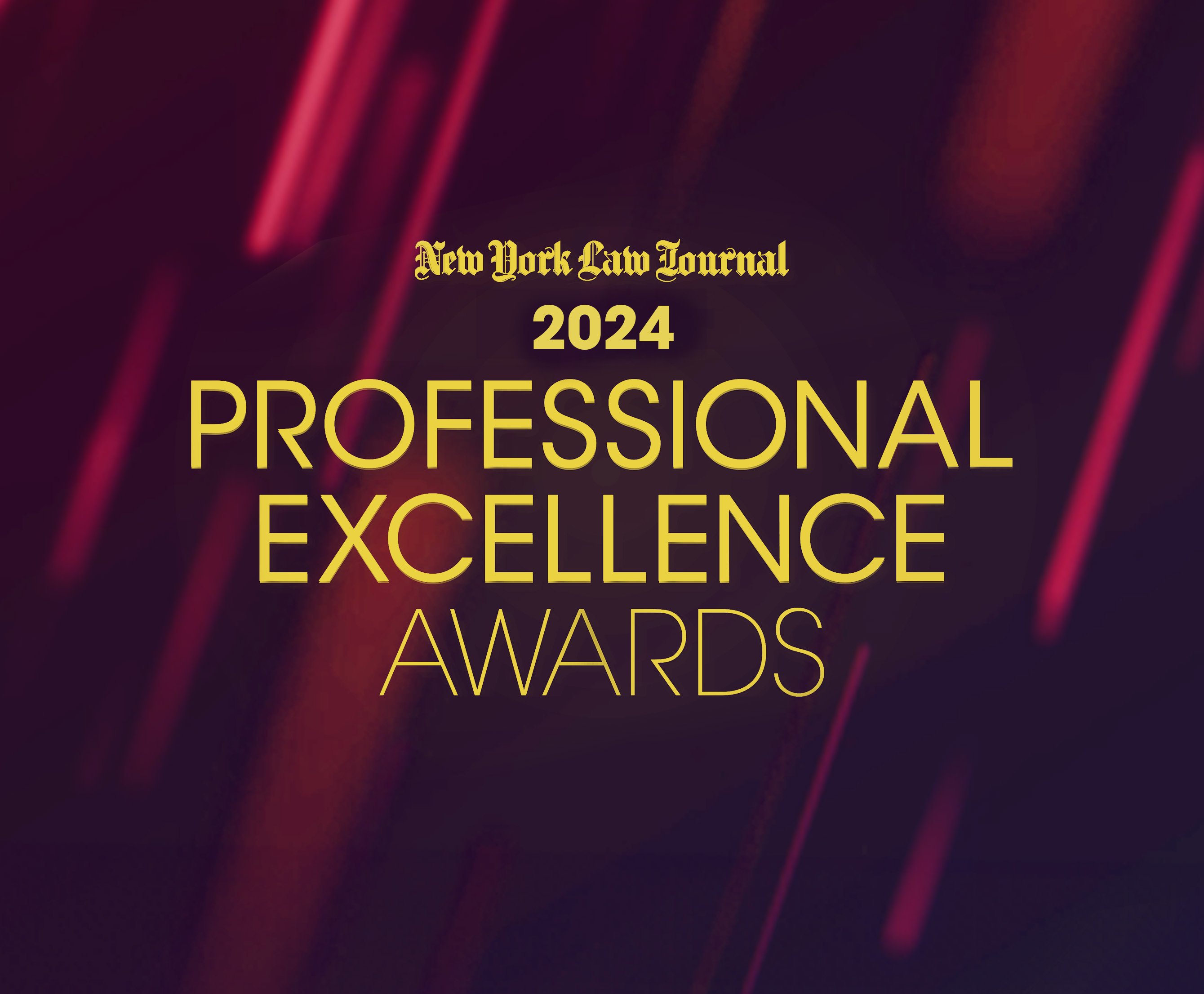 Jeffrey Kessler, partner, Winston & Strawn
Jeffrey Kessler, partner, Winston & StrawnAttorney of the Year Finalist: Jeffrey Kessler
In these last 12 months, Kessler's career has perhaps had even more notable moments than on average—if any of his yearly stretches can be called average.
October 21, 2019 at 11:02 AM
6 minute read
When the country's top athletes are looking to compete with the major sports leagues or other organizations for breakthrough labor rights or contractual freedoms or more money, they often turn to battle-tested antitrust lawyer Jeffrey Kessler.
So it was no surprise last year when players for the U.S. women's national soccer team—that of the superstar squad that would soon huff and puff and plow its way to another World Cup crown—sought out the energetic Brooklyn-born lawyer.
Over a four-decade career, Kessler has helped lead the charge—legally, that is—for free-agency systems in both the NBA and NFL, winning the fight in both leagues. At the same time, he's negotiated ends to league-wide lockouts, and represented players and their unions in myriad high-stakes contract negotiations.
More recently, he has worked a five-year lawsuit against the NCAA that seeks to tear apart its "amateurism" structure for football and basketball players as we know it, by getting rid of the rules against paying athletes. (More on that one, later.)
And, of course, he has simultaneously maintained a defense-oriented corporate antitrust practice that has focused on representing an array of companies, including major electronics companies in Japan.
For the U.S. women's national soccer team, Kessler entered their long-time battle with the U.S. Soccer Federation—which employs them and the men's national team, and oversees the sport in the United States—at a momentous time. The team's players have long waged inside-baseball-type grievances against the federation over what they say is entrenched pay and work-condition inequity when compared to what the-much-less-successful men's team receives.
But last March, led by Kessler as their lawyer, 28 players launched a federal gender discrimination lawsuit in Los Angeles against U.S. Soccer that demands major gains for the women's players. And the legal action itself, boosted by the players' fame and outspokenness, has now become a marker to many across the world in the larger movement for gender equality across all sports.
Kessler, today co-chair of Winston & Strawn's antitrust and sports law practices, won't say much about the lawsuit at this point—declining in August, for instance, to even reveal whether a planned mediation for the case had taken place—but when asked to talk about the high-profile action in a career made up of many, he did say this:
"My career on the sports side has involved a series of these cases that try to achieve economic justice for professional athletes," the 65-year-old attorney said. "So this case seems to be really just a logical extension of a number of other cases we"—that is, he and colleagues at three firms at which he's been a partner over the decades—"have had for years." He added, "We've worked on a lot of important cases, but this certainly ranks right up there."
Back in 1977, Kessler wasn't long out of Columbia Law School—where, he said, he'd "fallen in love with antitrust as a discipline" through his studies—when he joined the Manhattan office of Weil Gotshal & Manges. One of the big cases he helped litigate early on was defending clients Matsushita Electric and JVC against Zenith. Zenith had claimed, he said, that those companies and others were conspiring to take over the U.S. television market. The case led to a landmark U.S. Supreme Court antitrust decision that knocked down the conspiracy theory and claims.
But Weil, at the time, was also involved in helping now-legendary point guard Oscar Roberston fight the NBA for free agency rights and, after Robertson's case settled to the athlete's benefit, Kessler—who did not work himself on the Robertson matter—was asked by the firm to advise the NBA player's union on antitrust matters. That work helped lead, he said, to a continuous stream of players and unions seeking him out in the coming years for work on other matters not related to antitrust.
Of the dual focus of his career—antitrust defense work and players' rights work—he said of antitrust that he "loves the combination of law and economics, and the fact that over time you become an expert in an industry and then get to develop what is the right economic outcome for that industry and its set of problems."
Whereas of sports law—in which he's often been seated in heated arbitrations—he said he has loved the "chance to be in on the plaintiffs' side" and to champion the cause of professionals that he says have been under-compensated on the free market for decades.
Tom DePaso, the National Football League Players Association's general counsel, said in an email that Kessler has been the union's "primary outside counsel … for decades."
He next called Kessler "one of the brightest lawyers I have ever met" and said, "What sets him apart is his ability to think on his feet faster than the opposition, creatively crafting arguments to counter the other side in the courtroom and arbitration."
"These same attributes," DePaso continued, "also make him invaluable in the context of collective bargaining with the NFL."
In these last 12 months, Kessler's career has perhaps had even more notable moments than on average—if any of his yearly stretches can be called average.
He's secured wins against class certification motions in two federal antitrust litigations, including in a major automotive parts case in the Eastern District of Michigan. In that action, purchasers of car bearings have sued Kessler's automotive-parts manufacturer-clients as part of a sweeping multi-district litigation that seeks some $13 billion in total damages, Kessler said.
And then, of course, there's the football- and basketball-players case against the NCAA, in the Northern District of California. Launched in 2014, its goals are huge: It asks for an end to amateurism, as we know it, in major college football and basketball. And those goals have not been reached—at least not yet, said Kessler.
But last March, Judge Claudia Wilken ruled in the student-athletes' favor, in 104 pages, when she decreed that payments to players that are educational-related can't be limited.
Kessler pointed out that the decision—currently being appealed in the U.S. Court of Appeals for the Ninth Circuit—means that some $200 million more per year would go to athletes via educational benefits, such as cash incentives for academic progress and graduate school tuition.
Still, many have underscored that the ruling doesn't come close to reaching the plaintiffs' goal of bringing about professional-like compensation. And a New York Times article from March said about the "victory": "So why doesn't it feel as if the group of athletes who pursued the litigation to end the NCAA's rule won the case?"
But, to all of that, Kessler—ever the lawyerly thinker and fighter—said simply, "Yes, we had a broader relief [that we wanted]. And we will seek that on cross appeal."
This content has been archived. It is available through our partners, LexisNexis® and Bloomberg Law.
To view this content, please continue to their sites.
Not a Lexis Subscriber?
Subscribe Now
Not a Bloomberg Law Subscriber?
Subscribe Now
NOT FOR REPRINT
© 2024 ALM Global, LLC, All Rights Reserved. Request academic re-use from www.copyright.com. All other uses, submit a request to [email protected]. For more information visit Asset & Logo Licensing.
You Might Like
View All
For Paul Weiss, Progress Means 'Embracing the Uncomfortable Reality'
5 minute read
Kenneth Feinberg Had Dreams of Being on the Big Screen. His 9/11 Victims Fund Gave Him an Unexpected Star Turn

City Bar Holds 32nd Annual Henry L. Stimson Medal Presentation

The 2024 Winners of the Law Journal's Professional Excellence Awards
Trending Stories
- 1Call for Nominations: Elite Trial Lawyers 2025
- 2Senate Judiciary Dems Release Report on Supreme Court Ethics
- 3Senate Confirms Last 2 of Biden's California Judicial Nominees
- 4Morrison & Foerster Doles Out Year-End and Special Bonuses, Raises Base Compensation for Associates
- 5Tom Girardi to Surrender to Federal Authorities on Jan. 7
Who Got The Work
Michael G. Bongiorno, Andrew Scott Dulberg and Elizabeth E. Driscoll from Wilmer Cutler Pickering Hale and Dorr have stepped in to represent Symbotic Inc., an A.I.-enabled technology platform that focuses on increasing supply chain efficiency, and other defendants in a pending shareholder derivative lawsuit. The case, filed Oct. 2 in Massachusetts District Court by the Brown Law Firm on behalf of Stephen Austen, accuses certain officers and directors of misleading investors in regard to Symbotic's potential for margin growth by failing to disclose that the company was not equipped to timely deploy its systems or manage expenses through project delays. The case, assigned to U.S. District Judge Nathaniel M. Gorton, is 1:24-cv-12522, Austen v. Cohen et al.
Who Got The Work
Edmund Polubinski and Marie Killmond of Davis Polk & Wardwell have entered appearances for data platform software development company MongoDB and other defendants in a pending shareholder derivative lawsuit. The action, filed Oct. 7 in New York Southern District Court by the Brown Law Firm, accuses the company's directors and/or officers of falsely expressing confidence in the company’s restructuring of its sales incentive plan and downplaying the severity of decreases in its upfront commitments. The case is 1:24-cv-07594, Roy v. Ittycheria et al.
Who Got The Work
Amy O. Bruchs and Kurt F. Ellison of Michael Best & Friedrich have entered appearances for Epic Systems Corp. in a pending employment discrimination lawsuit. The suit was filed Sept. 7 in Wisconsin Western District Court by Levine Eisberner LLC and Siri & Glimstad on behalf of a project manager who claims that he was wrongfully terminated after applying for a religious exemption to the defendant's COVID-19 vaccine mandate. The case, assigned to U.S. Magistrate Judge Anita Marie Boor, is 3:24-cv-00630, Secker, Nathan v. Epic Systems Corporation.
Who Got The Work
David X. Sullivan, Thomas J. Finn and Gregory A. Hall from McCarter & English have entered appearances for Sunrun Installation Services in a pending civil rights lawsuit. The complaint was filed Sept. 4 in Connecticut District Court by attorney Robert M. Berke on behalf of former employee George Edward Steins, who was arrested and charged with employing an unregistered home improvement salesperson. The complaint alleges that had Sunrun informed the Connecticut Department of Consumer Protection that the plaintiff's employment had ended in 2017 and that he no longer held Sunrun's home improvement contractor license, he would not have been hit with charges, which were dismissed in May 2024. The case, assigned to U.S. District Judge Jeffrey A. Meyer, is 3:24-cv-01423, Steins v. Sunrun, Inc. et al.
Who Got The Work
Greenberg Traurig shareholder Joshua L. Raskin has entered an appearance for boohoo.com UK Ltd. in a pending patent infringement lawsuit. The suit, filed Sept. 3 in Texas Eastern District Court by Rozier Hardt McDonough on behalf of Alto Dynamics, asserts five patents related to an online shopping platform. The case, assigned to U.S. District Judge Rodney Gilstrap, is 2:24-cv-00719, Alto Dynamics, LLC v. boohoo.com UK Limited.
Featured Firms
Law Offices of Gary Martin Hays & Associates, P.C.
(470) 294-1674
Law Offices of Mark E. Salomone
(857) 444-6468
Smith & Hassler
(713) 739-1250






